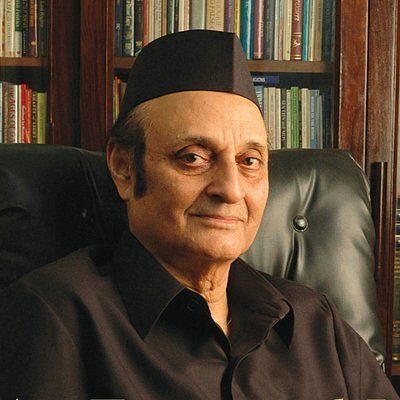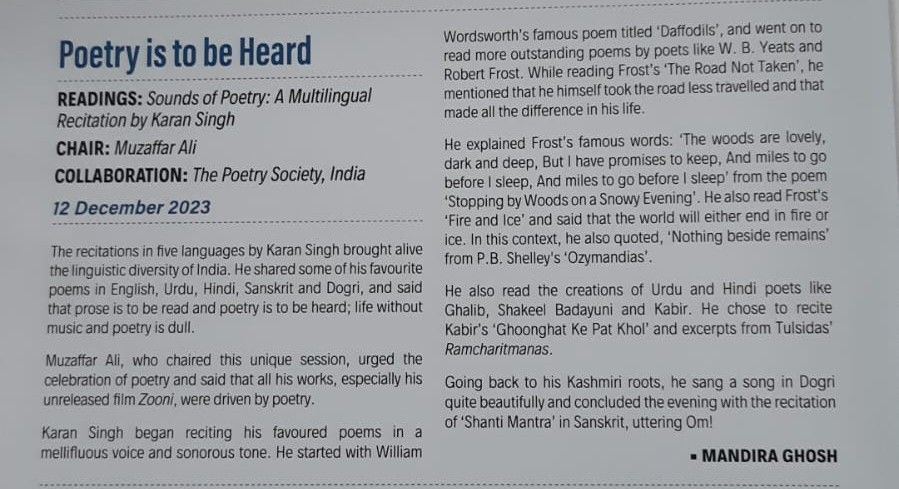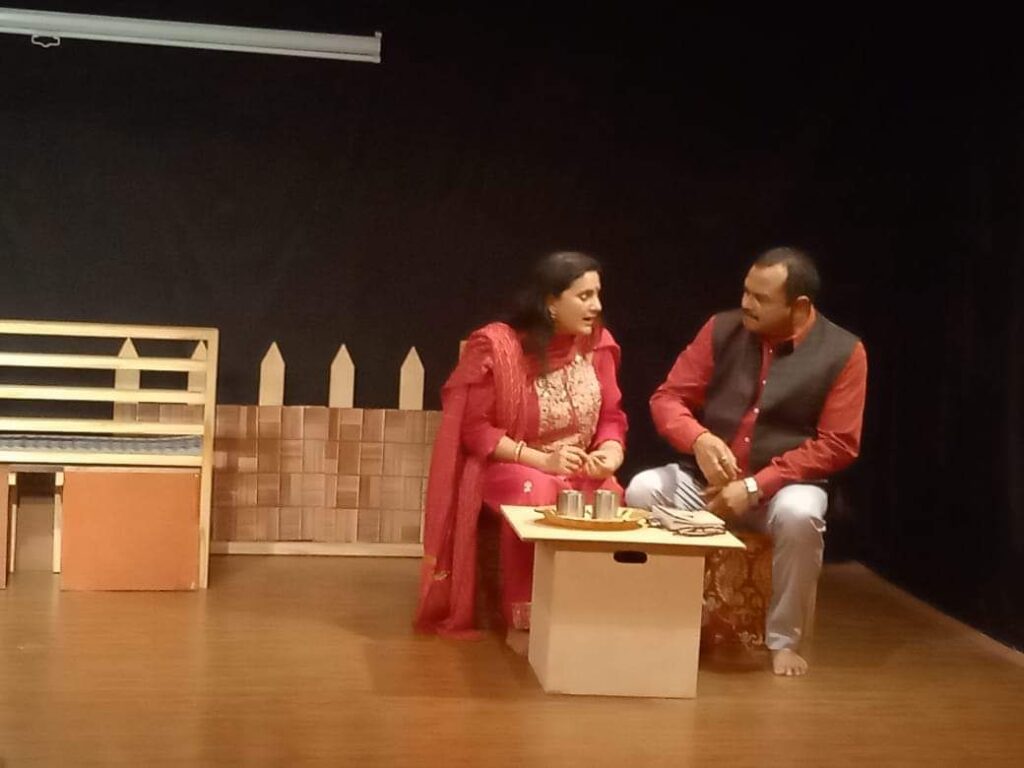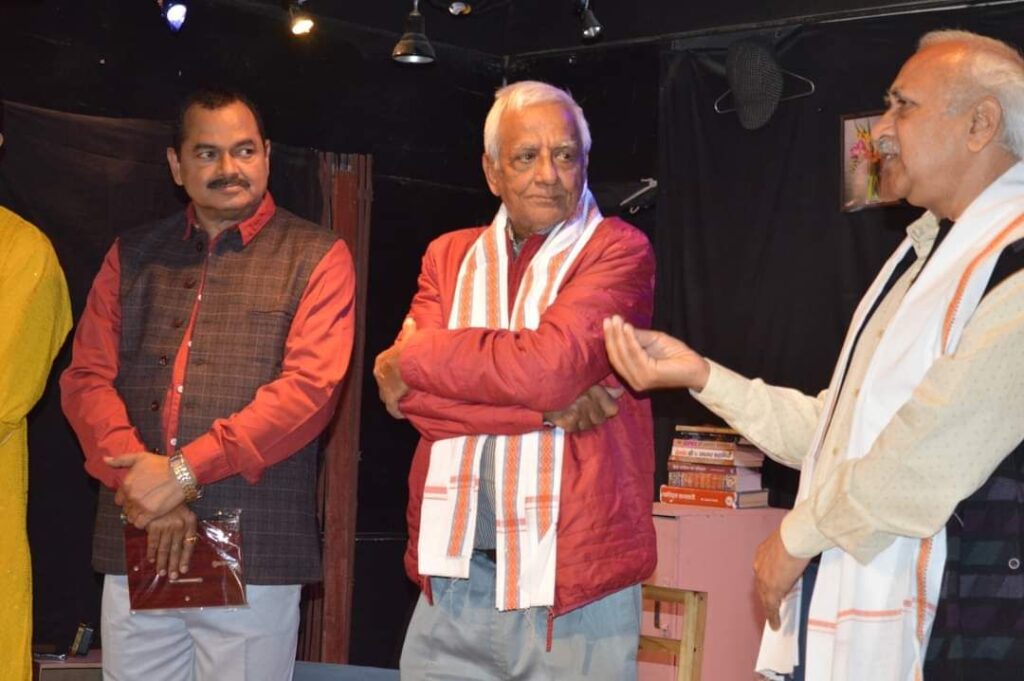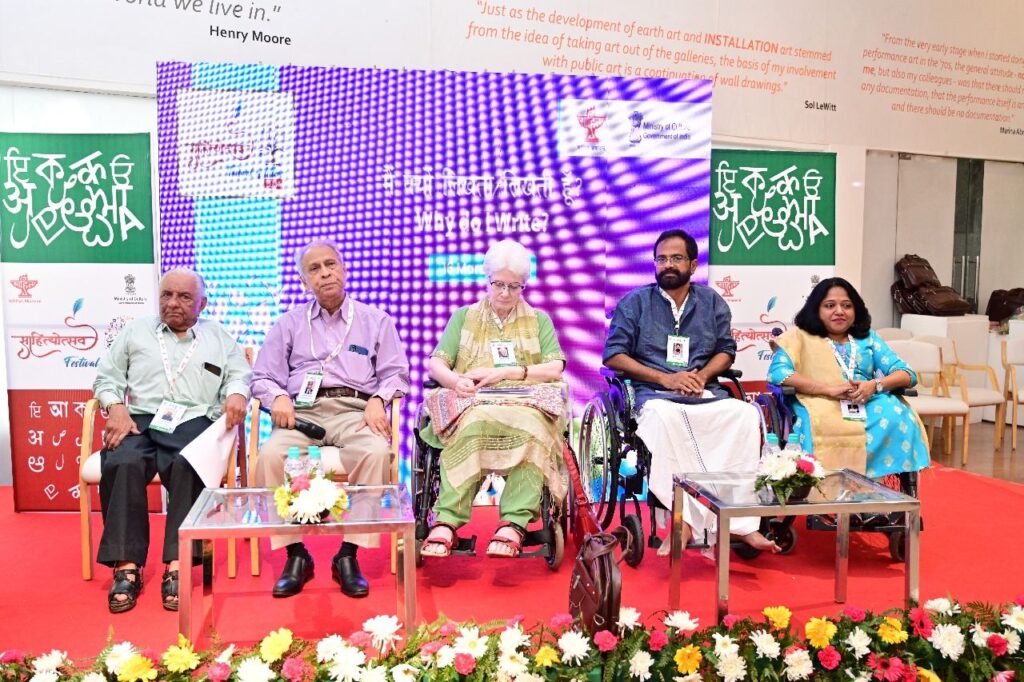“Kilmoras and Hisalus” & other poems from Mussoorie by Rachna Joshi
Reading at IHC
From my new book
The poem ‘Kilmoras and Hisalus’,
About my childhood
In Fernlodge Barlowgunj,
And the denizens
Of that village.
By Rachna Joshi
Kilmoras and Hisalus

Eating kilmoras and hisalus
On the way to Naala Pani
Past the Old Brewery
And Sikandar Hall.
Fern Lodge perched atop a hillside
With peach and plum trees
Trailing along a slope.
Below, the cowshed
Where the gwala comes to milk the cows
And to keep encroachers at bay
Who are creeping up the hillside.
Barlowgunj Market
With Chaman Lala’s shop
And the schoolchildren
From St. George’s
Coming for tuck.
Chachi and Buaji in the kitchen
On stilts
Churning out pots of soup.
The old piano in the drawing room
Which children liked to play.
Patties and pastries in the evening.
Granpa’s green fingers in the nursery
Where there were fuschias and begonias
As well as a beehive.
Hydrangeas in the gardens
Rhododendron Squash
Mountains are a special place
Where the mind soars
Above the mundane
and how creativity flowers
among the cedars and rhododendrons.
Granma making rhododendron squash.
Her deft fingers cutting the flowers
And cooking them
In sugar syrup.
This is how I would
Like to remember
My childhood
In Fern Lodge Barlowgunj.
Mussoorie Modern School

I remember
The pipes used to freeze
In winter in Chaman Estate.
In the hostel dorms
The matron used to change our clothes.
I remember the Tibetan teacher
Putting butter and salt
In her tea
In the mess.
Thal jus mukh, kator jus aankh.
Mr. Viegas, the Principal,
With his wife Shirley and daughter Candy
In a cottage by the side.
Framed by flowering beds.
Driving to Dehradoon
Driving to Dehradoon
Passing Duckchick
And Chital at Khatauli.
Seeing the travelers and itinerants.
Having pakoras and chai,
With the canal nearby
And the bridge.
Attending the Doon readings
At Hotel Aketa in Rajpur.
With Mountain Echoes, Penguin
And Doon Library.
Shekhar Pathak, Ruskin Bond
And Anjali Nauriyal,
Poetry of the hills.
The stately Rajpur Road
With Daalanwaala and
Welham Girl’s High School.
Astley Hall and Ellora’s.
The Tibetan monastery
At the end of the road
Near Sahastradhara.
Getting caught in traffic jams
While returning on Easter
From Dehradoon.
Seemadwar
Walking to Seemadwar
After eating khichri
And passing Jagdamba’s shop
At Indiranagar.
Mrs. Chaturvedi’s house
And HARC.
Shukla Marriage Bureau
And Anurag Paudhshala.
Sun Chasers
Where Sumitaji
Is having a conversation
With the owner.
A budding romance.
Ganga Aarati

Ganga Aarati
At Haridwar
With diyas floated
On the Ganges,
And the waving of lamps.
Chanting and singing.
RACHNA JOSHI
Rachna Joshi is a poet and reviewer who has lived in India and North America. She has written five collections of poems: Configurations (Rupa & Co., 1993); Crossing the Vaitarani (Writer’s Workshop, 2008); Travel Tapestry (Yatra Books, 2013); Monsoon and Other Poems (Tethys, 2020); and Unraveling (Authors Press, 2024) She has a master’s in Creative Writing from Syracuse University in upstate New York, and has been widely published in magazines and anthologies in India and abroad. She worked as Senior Assistant Editor at the India International Centre, Delhi, for 28 years and lives in Noida, U. P.




